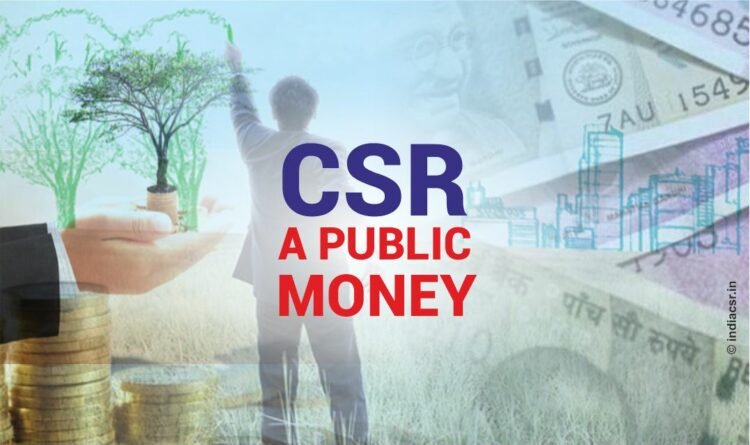The Companies Act 2013 of the Government of India has made it mandatory for the profit-making companies to mark out minimum 2% of their profit for CSR activities. As per the Section 135 of this Act, that becomes the Companies Rules 2014, any company coming under the mandated criteria of having minimum 1000 crore turnover or 500 crore net worth or 5 crore profit must spend at least 2% of the average net profit of previous three years in its CSR programme. Before this, in 2011, the Ministry of Corporate Affairs has launched the National Voluntary Guidelines (NVGs) for Social, Environmental & Economic Responsibilities of Business.
Also, Department of Public Enterprises (DPE), Ministry of Heavy Industries and Public Enterprises of Government of India has introduced the Guidelines for CSR & Sustainability for Central Public Sector Enterprises (CPSEs) in 2013. Also, SEBI Guidelines (2012) asks the top 100 listed companies to disclose information on their ESG (Environmental, Social and Governance) performance.
Once any Company commits a fund for CSR, the fund becomes the public money as it intends to be used for the society at large. Hence, the CSR fund as public money must be utilized in an appropriate manner with utmost transparency. It’s utilization in various planned programmes/projects should be monitored regularly.
The CSR Committee of the Institute of Chartered Accountants of India (ICAI), set up by an act of Parliament, has released the Technical Guide on Accounting for Expenditure on Corporate Social Responsibility (CSR) Activities on 1st July 2020, which has also been hosted on the website of the Institute. The document is available in public domain.
The objective of this Technical Guide is to provide guidance on recognition, measurement, accounting, presentation and disclosure of expenditure on activities relating to corporate social responsibility.
“With the increasing importance of the CSR activities, it has been felt necessary to provide guidance to the industry and professionals on the accounting aspects of the CSR Expenditures. This Technical Guide is an effort made by the CSR Committee of ICAI towards meeting the expectations of the professionals and the stakeholders in this respect.”, said CA. Pramod Jain, Chairman, CSR Committee
Background
It has now become mandatory for Companies to take up CSR projects on social welfare activities. India has regulated and mandated CSR activities to be undertaken by certain categories of companies. In the present times, the ambit of CSR activities has grown manifold and is playing an important part in achieving the sustainable development goals and private-public partnership in nation building. CSR has also played a very important role in supporting the social and economic development of the country during the Covid-19 pandemic.
Section 135 of the Companies Act, 2013 has made it mandatory for companies fulfilling certain criteria, to implement and report CSR policies. Rules framed thereunder and Notifications issued from time to time have provided extensive guidelines on the activities to be undertaken by the companies and the reporting of the same in the Annual Report of the Company.
The ICAI said that, with the increasing importance of the CSR activities, it has been felt necessary to provide guidance to the industry and professionals on the accounting aspects of the CSR Expenditures. This Technical Guide is an effort made by the CSR Committee of ICAI towards meeting the expectations of the professionals and the stakeholders in this respect. Subsequent to the issue of the Technical Guide on Accounting for Expenditure on Corporate Social Responsibility Activities, the Guidance Note on Accounting for Expenditure on Corporate Social Responsibility Activities, issued on 15th May 2015, stands withdrawn.
“This publication is a laudable effort by the CSR Committee as it attempts to provide guidance on the CSR Accounting related issues, to the members and various other stakeholders.”, said CA. Atul Kumar Gupta, President, ICAI
Being a stakeholder, any individual citizen or group of the people has the right to know about any CSR programme/project happening in the country. Noteworthy to cite, CSR activities do come under the purview of Right to Information (RTI) Act 2005.







